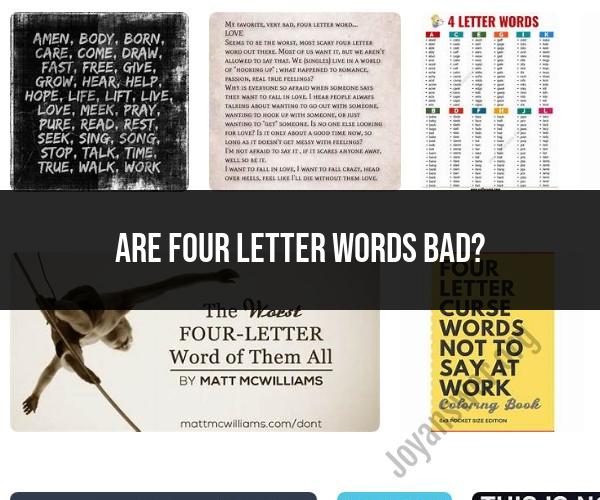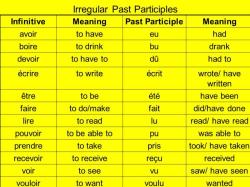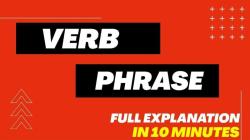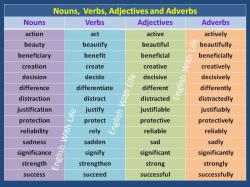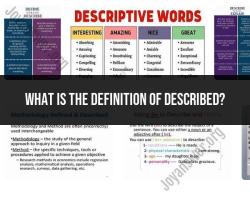Are four letter words Bad?
Four-letter words, often associated with profanity and offensive language, are not inherently "bad." Instead, they are a category of words that includes both neutral and offensive terms. It's important to debunk some myths and clarify misconceptions about four-letter words:
Context Matters: The meaning and appropriateness of a four-letter word depend on the context in which it is used. In some situations, these words may be considered vulgar or offensive, while in other contexts, they are entirely appropriate. For instance, the word "love" is a four-letter word and is universally seen as positive.
Cultural and Social Norms: What constitutes a "bad" or offensive word varies across cultures and societies. Different words are considered offensive in different regions, languages, and social groups. What may be offensive in one place may be acceptable in another.
Language Evolution: Language evolves over time, and words that were once considered offensive may become more widely accepted, and vice versa. The perception of what is taboo or offensive can change with shifts in society.
Intention Matters: The intent behind using a word is crucial. Using a four-letter word to insult or demean someone is generally considered disrespectful. On the other hand, using strong language in creative writing, art, or certain forms of expression is a legitimate choice.
Freedom of Speech: In many democratic societies, freedom of speech is protected, and individuals have the right to use language within the boundaries of the law. However, this doesn't mean there are no consequences for using offensive language, especially in specific settings or situations.
Consider Your Audience: It's essential to be mindful of your audience and the situation. Using offensive language in professional settings, public spaces, or around children may be inappropriate and can have consequences.
In summary, four-letter words, like all words, are tools of language. They can convey a wide range of meanings and emotions, both positive and negative. Whether they are "bad" or not depends on the context, cultural norms, and intent behind their usage. It's crucial to be respectful and considerate of others when choosing your words, and to be aware of the impact they may have in different situations.
Four-Letter Words: Are They Always Inappropriate?
Four-letter words are often considered to be inappropriate, but this is not always the case. The appropriateness of a four-letter word depends on the context in which it is used.
For example, four-letter words are often used in informal settings, such as among friends or family. They can also be used in certain professional settings, such as in comedy or in literature. However, four-letter words should generally be avoided in formal settings, such as in business or in education.
Deciphering Word Length: Exploring the Use of Four-Letter Words
Four-letter words are often used to express strong emotions, such as anger, frustration, or excitement. They can also be used to describe vulgar concepts, such as sex or body parts. However, four-letter words can also be used in a more creative or humorous way.
For example, the four-letter word "damn" can be used to express anger or frustration. However, it can also be used to emphasize a point or to add humor to a statement.
Context Matters: The Perception of Four-Letter Words
The perception of four-letter words can vary depending on the culture or region. In some cultures, four-letter words are considered to be very taboo and should never be used. In other cultures, four-letter words are more common and may be used in a variety of contexts.
Even within a single culture, the perception of four-letter words can vary depending on the situation. For example, four-letter words may be acceptable to use among friends, but not in a professional setting.
Overall, whether or not a four-letter word is appropriate depends on the context in which it is used. It is important to be mindful of your surroundings and to use four-letter words in a way that is respectful to others.
Here are some tips for using four-letter words appropriately:
- Be mindful of your audience. Are you in a formal or informal setting? Are you speaking to people who are likely to be offended by four-letter words?
- Use four-letter words sparingly. Don't overuse them, or they will lose their impact.
- Use four-letter words creatively. Look for ways to use them in a way that is original and unexpected.
- Be respectful. Don't use four-letter words to insult or demean others.
If you are unsure whether or not a four-letter word is appropriate, it is always best to err on the side of caution and avoid using it.
